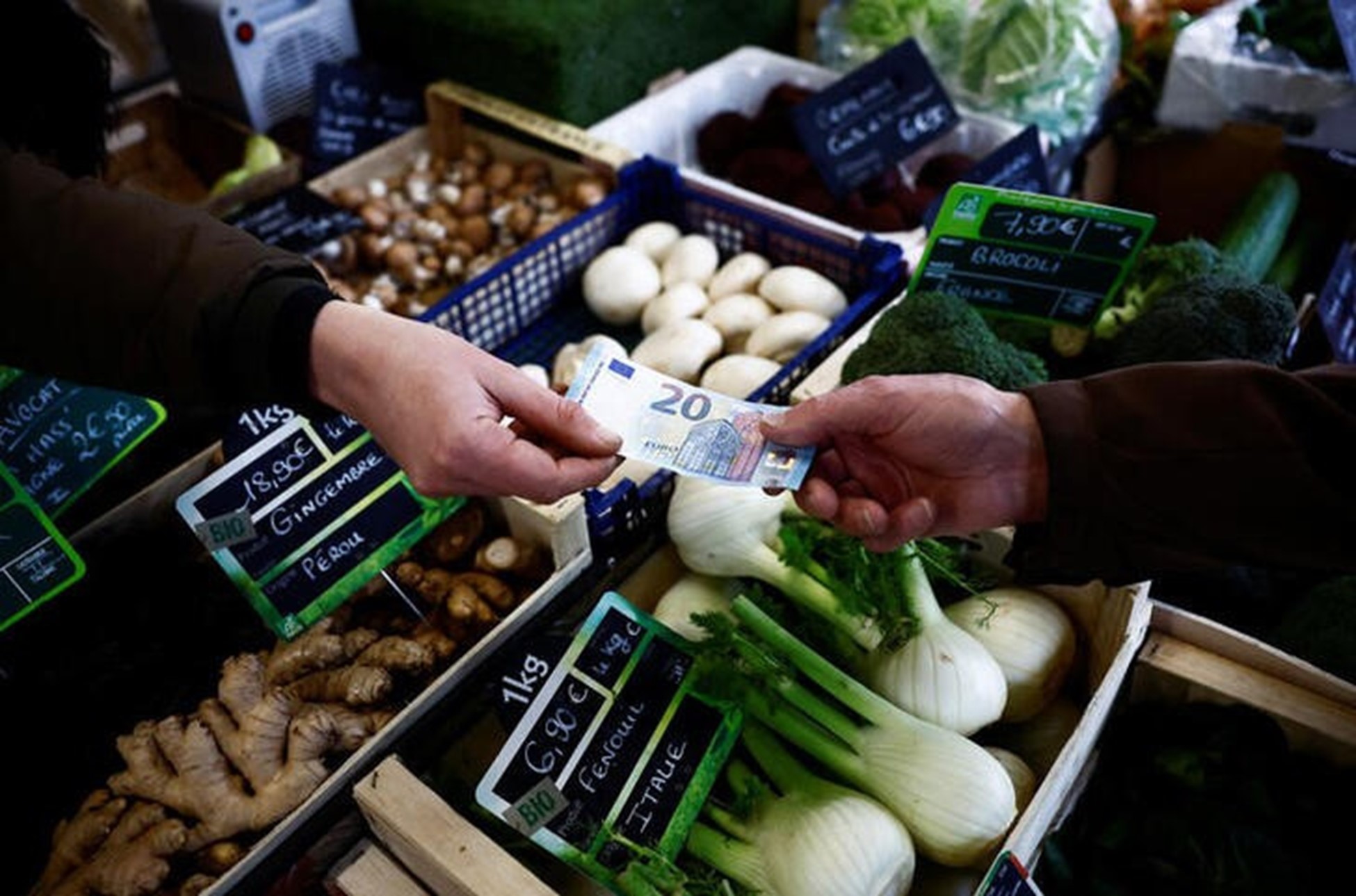Euro zone inflation fell unexpectedly last month, solidifying the case for the European Central Bank to start lowering borrowing costs from record highs.
Consumer price growth in the 20 nations sharing the euro currency slowed to 2.4% in March from 2.6% a month earlier, defying expectations for a steady rate as food, energy and industrial goods prices all pulled the headline figure lower.
Underlying inflation, closely watched by the ECB to gauge the durability of price pressures, meanwhile fell to 2.9% from 3.1%, coming below expectations for 3.0%, data from Eurostat, the EU's statistic's agency showed on Wednesday.
The only potential concern for the ECB will be that services inflation has been holding steady at 4.0% for months now, suggesting that relatively quick wage growth is keeping prices in the sector under constant pressure.
Inflation has been on a steady downward path for more than a year but has fallen more quickly since last autumn than many had predicted, shifting the debate to just how soon and how fast the ECB will unwind record rate hikes.
Meeting next week, the central bank is expected to acknowledge the improved outlook but policymakers are unlikely to cut rates straight away, having repeatedly pointed to June as the next crucial meeting for policy setting.
This is why investors see almost no chance of a cut on April 11 but have fully priced in a move for June, followed by another two or three steps later this year.
The ECB has been cautious in starting to ease policy because it only expects inflation back at its 2% target next year, even as some private forecasters take a more benign view, projecting the headline rate at around 2% by this autumn.
The ECB has said it needs to see essential wage data from the early part of the year before it is comfortable easing policy. Some policymakers also fear that moving too far before the U.S. Federal Reserve begins reducing rates could be counterproductive, since a cut would weaken the euro and boost imported inflation.
Wages have been growing relatively quickly in recent quarters but the pace of growth is slowing and workers are still only slowly recouping real purchasing power lost to several years of rapid inflation.
Still, unemployment is holding at a record low 6.5%, separate Eurostat data showed on Wednesday, suggesting that the labour market remains exceptionally tight.
Although oil prices have been steadily increasing since the start of the year, crucial natural gas prices remain low after an unusually mild winter, pointing to mild but still manageable risks from energy costs in the months ahead.
Dovish policymakers, meanwhile, argue that economic growth is now exceptionally weak as the euro zone has been skirting a recession for six quarters now.
This weakens corporate pricing power and thus eases price pressures, so the ECB can afford to ease up on the brakes, especially since lower commodity prices are also helping disinflation.
While the ECB is far from settled on how far rates could fall, most appear to agree that the deposit rate, now at 4%, will restrict growth at least until it hits 3%, so the initial cuts are more about easing restriction than providing stimulus.





















































